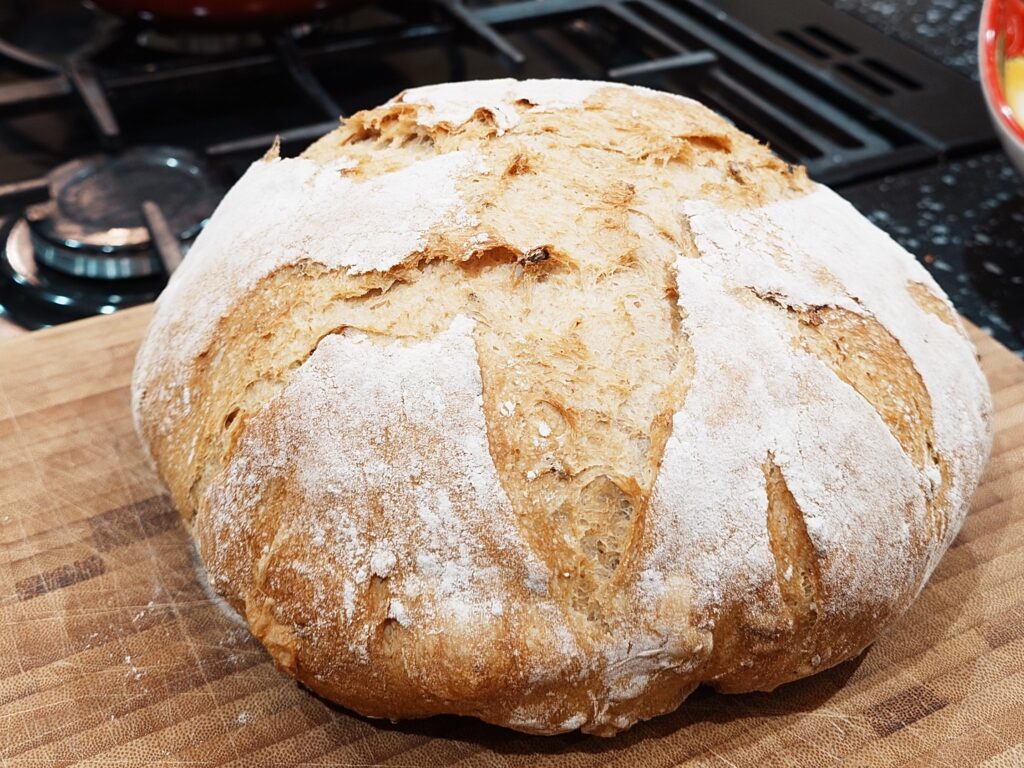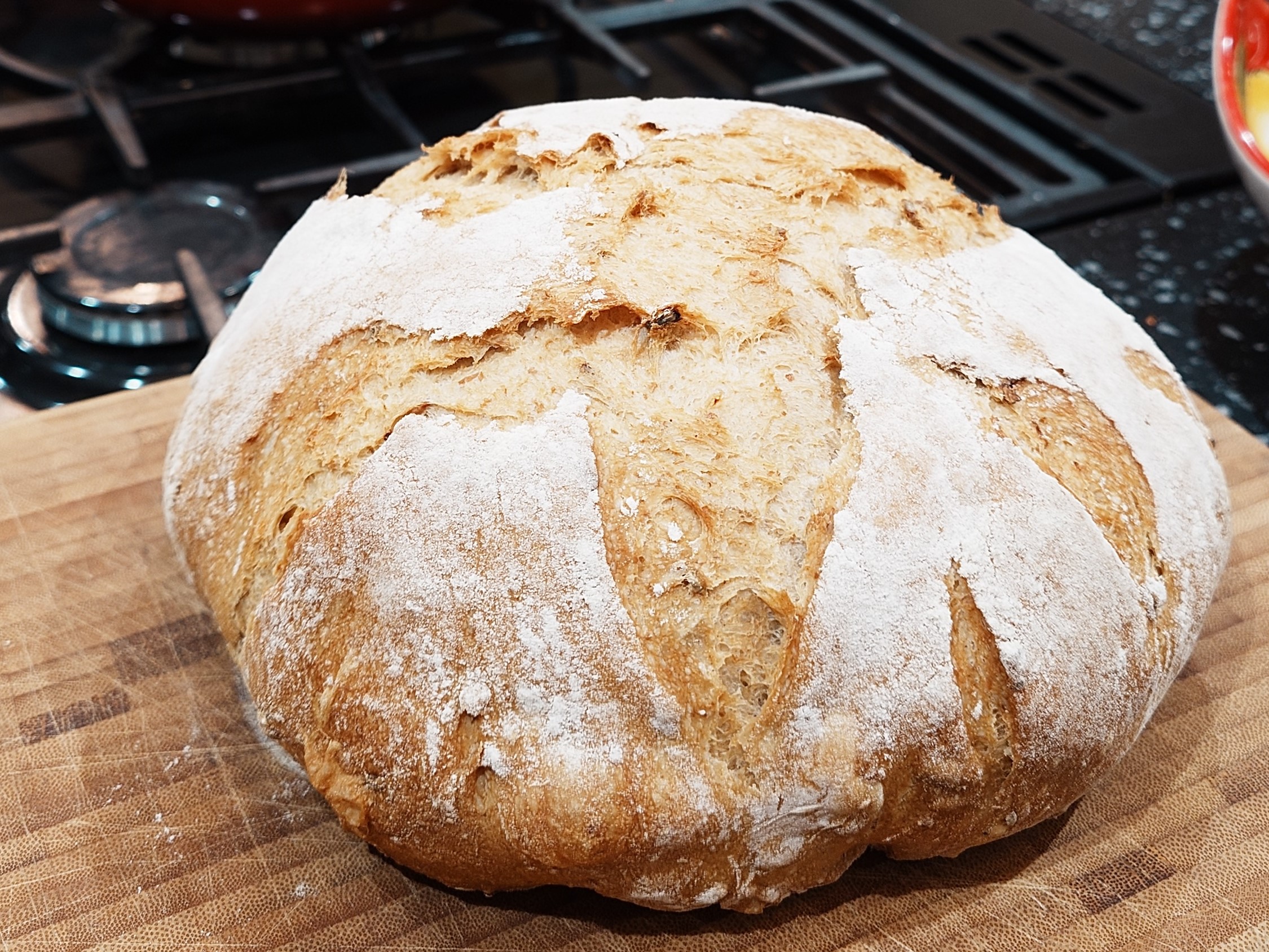

I baked this! And, as well as having a delicious crust and satisfying aerated texture, it provided the perfect analogy – what’s not to love?!
I’ve always enjoyed cooking but my early attempts at making bread were wholly embarrassing. Little rocks that even the seagulls struggled with. It was so easy just to ditch it as a bad idea. After all, you can get bread without all that performance. And that’s what I did. Focus on what I can do and save myself the heartache.
But during lockdown, I came back to the idea – as half the population did. This time I stuck with it – and my waistline is proof positive I’ve come a long way.
It’s not difficult to look back and chart my progress: I was rubbish. Now I’m good. But that isn’t to say that I constantly improved. Sometimes the dough seemed to be against me, while I made a full-on leap forward other times.
Now, we all know that if you want to master any skill you have to put the effort in. Breadmaking is clearly something that you’d get better at the more you do it, like cycling, or writing or painting. But there are things that we don’t really consider to be skills. Things that we simply expect people are – or are not – capable of. Baked-in, if you will.
Managing time and studying are two such things – not a great combination for an exam-facing teen! We tend to think of these as coming naturally – or write it off as “not my strong point”. But both are absolutely something that can be honed and improved on.
There are some fundamental aspects that are common to developing any skill.
What also struck me is the importance that other people play. As parents of exam-facing teens (or other involved adult) our nurturing or nagging will often make the difference between wanting to try to get better or not. And so we need to support and encourage them, rather than expect them to be able to get it the first time. Just like we did when they were learning to walk (or make a bed!). It’s not always easy, but with practice, we’ll all get there 🙂
Join our newsletter (link in the footer), we’ll soon be posting about how to create great routines to develop time management skills, specifically for revision.

Our GCSE and A Level bundles contain everything you need to manage revision, straight out of the box. All tailored to the exact courses you need.